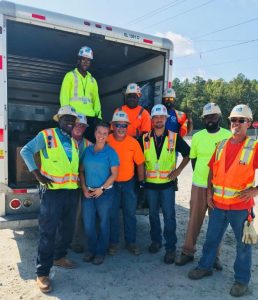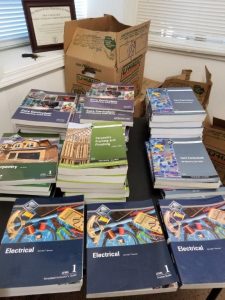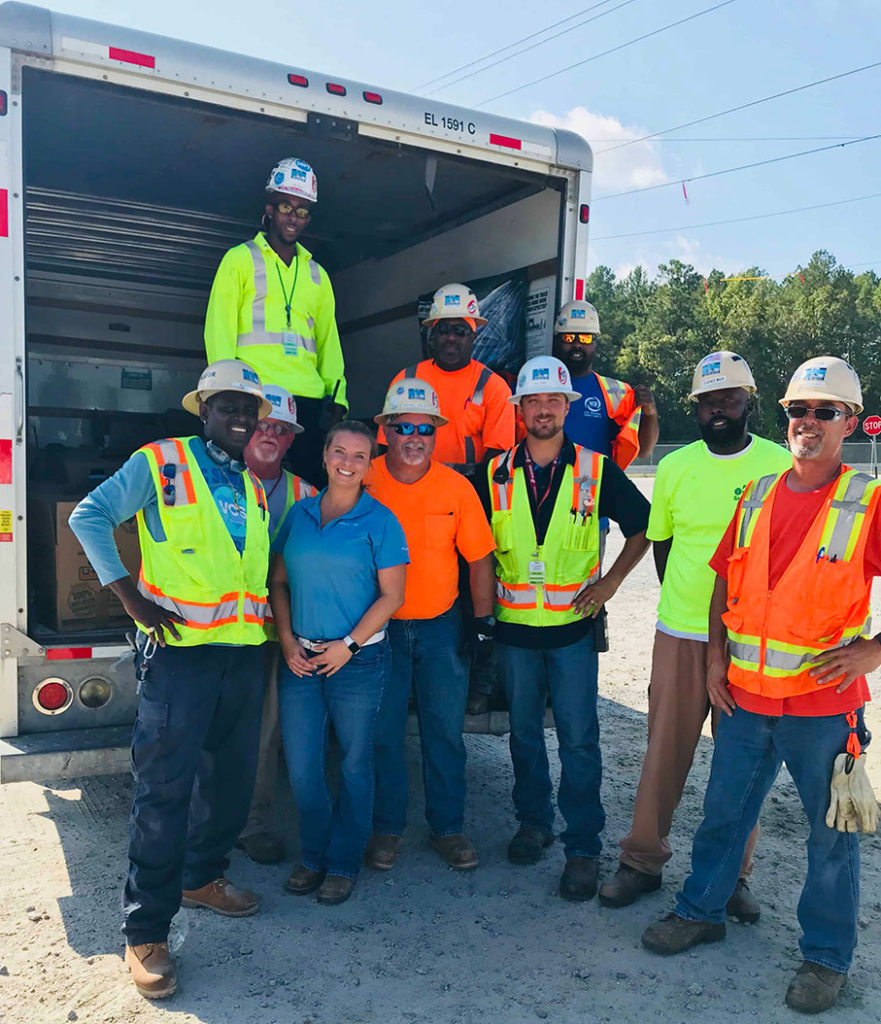Connecting Industry to Education in the Carolinas
With the shortage of skilled craft professionals within the construction industry estimated to be at 1.5 million by 2021, it’s no secret that recruitment needs to be a priority. It takes time to educate, train and gain competency and industry can’t postpone recruiting fresh talent, particularly with 41 percent of the experienced workforce set to retire by 2031. Thankfully, Career Technical Education (CTE) programs are already working towards providing students with academic and technical skills to be successful in future careers, in industries like construction.
How can industry contribute? To help bridge the skills shortage, employers need to work with educators to prepare students for skills that are in high demand. Mark Schneider and Rooney Columbus make a valid observation in their study, Degrees of Opportunities, for American Enterprise Institute, “The important question, thus, is not whether degrees have value but what types of knowledge and skills are in greatest demand and are, in turn, rewarded in the labor market.” For educators to know which skills are in demand, industry needs to tell them and build connections in their local communities’ in tangible ways.
Here are a few examples of how the industry can connect to education:
Donate books. Schools need resources. While they may be willing to teach classes for craft skills, they often need support to be able to do so. In October of 2017, Fluor donated approximately $150,000 of NCCER Curricula to schools and apprenticeship programs in the North and South Carolina area, to be distributed by Educational Services Unlimited, a local non-profit organization based in Charlotte. The curriculum covers topics from carpentry, electrical, instrumentation, millwright and more, and included about 2,000 books.

Team from Fluor South Carolina donates training materials to high schools and apprenticeship programs.
Although founder and president of Educational Services Unlimited, Tim Eldridge, relies mainly on word of mouth regarding the availability of the books, the number of requests that he received is surprising — in fact, there may not be enough books. Eldridge commented that the number of requests that came in really speaks to the need for resources in public schools. Educational Services Unlimited is working through the requests in a first come first serve basis and has currently distributed books to eight high schools and two community colleges’ apprenticeship programs. As they are only responsible for shipping, the programs are able to utilize the resources without incurring high cost.
Provide materials. As with th e books, resources such as building materials can have a big impact in school programs. Companies that have extra material from projects, even if it doesn’t seem like a lot to them, should consider donating it to a school in their region. NCCER provides a resource to help educators and construction industry members make important connections, aptly named the Connection Map. Participation in the map is completely voluntary and includes educators, industry members and SKillsUSA and ACTE contacts contacts. Interested parties can use the map to make connections for presentations, internships, resources and more.
e books, resources such as building materials can have a big impact in school programs. Companies that have extra material from projects, even if it doesn’t seem like a lot to them, should consider donating it to a school in their region. NCCER provides a resource to help educators and construction industry members make important connections, aptly named the Connection Map. Participation in the map is completely voluntary and includes educators, industry members and SKillsUSA and ACTE contacts contacts. Interested parties can use the map to make connections for presentations, internships, resources and more.
Volunteer at Career Days. Volunteering at career days gives industry members a chance to show students opportunities available in the construction industry. Combating public perception that a career as a craft professional isn’t profitable or stable is necessary, and one of the best ways to do so is to be involved on a personal level. Share success stories with students and show examples of projects that you’ve been involved in. Provide resources such as trading cards so students can see examples of salaries and career paths.
Industry can support educators and in turn, make a positive impression on the next generation. Donating books helps a program that may not have been able to be started otherwise. Providing material helps students get hands-on experience. Sharing your experience resonates with a student that will chose to learn a craft. There are students willing to learn and educators willing to teach; we just need to make those connections to help bring these opportunities to light.
About NCCER — NCCER is a not-for-profit 501(c)(3) education foundation created by the construction industry to develop standardized curriculum with portable credentials and to help address the skilled construction workforce shortage. NCCER is recognized by the industry as the training, assessment, certification and career development standard for the construction and maintenance craft professional. For more information, visit www.nccer.org or contact NCCER customer service at 888.622.3720.






